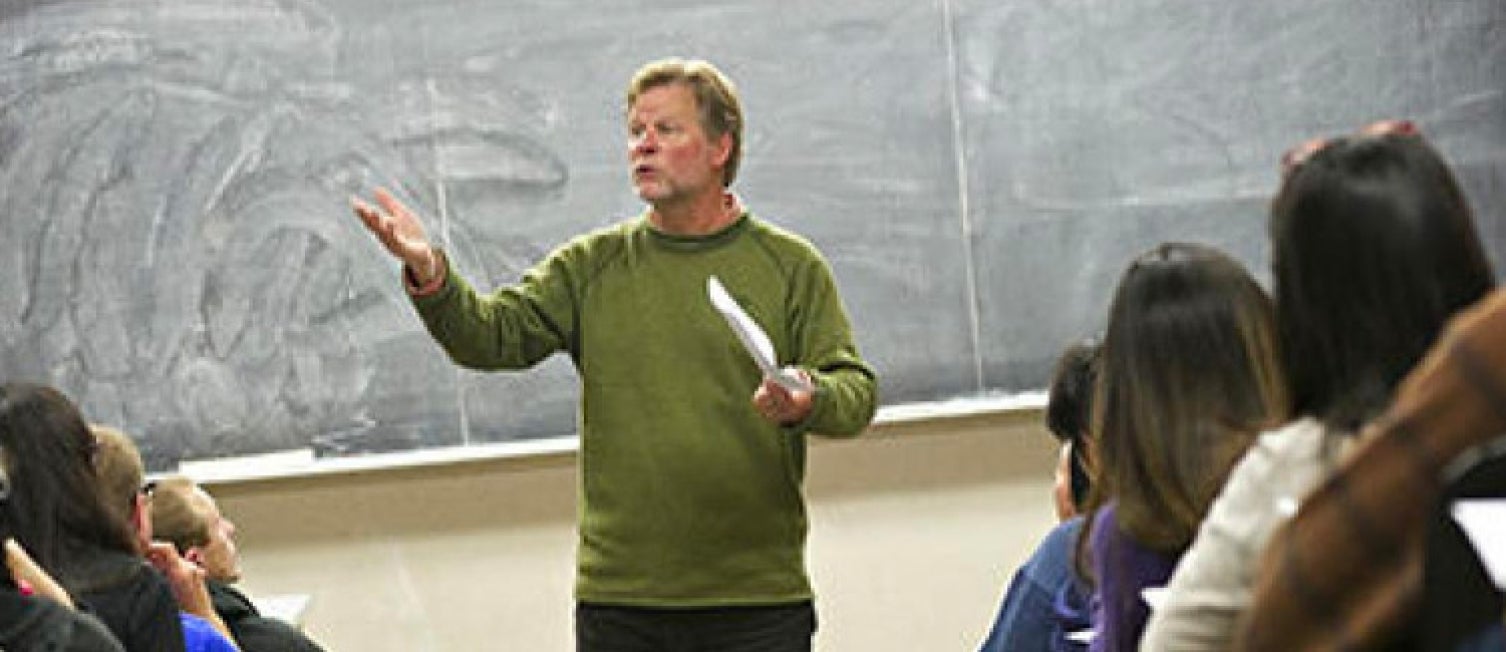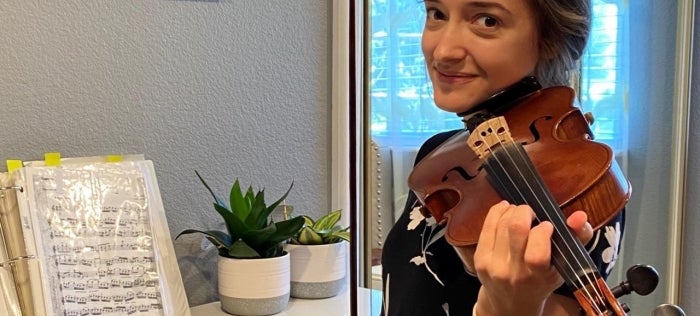
Digging up discoveries by philanthropy
Environmental scientists and ranchers may not seem like common allies; but Professor Randy Dahlgren, who holds the Russell L. Rustici Endowed Chair in Rangeland Watershed Sciences, has used his love for soil science to help rangeland communities remain viable. In fact, this unlikely partnership is part of Dahlgren’s claim to international fame. He discovered that many California rocks contain nitrogen—a matter of great importance to ranchers who face environmental regulation.
Dahlgren’s willingness to help others contributed to UC Davis’ close relationship with the late Russell Rustici, a cattle rancher from Lake County. In 1991, the two men met at the University of California Sierra Foothill Rangeland and Extension Center in Marysville. In typical UC Davis fashion, Dahlgren volunteered to help Rustici and run nutrients on his water. It was this collaborative academic spirit that Rustici would soon begin to know and love about the UC Davis community, and what would eventually motivate him to give more than $10 million to the university.
With these gifts established two endowed chairs in the College of Agricultural and Environmental Sciences in addition to creating an $8 million research endowment. His legacy remains deeply connected to the use of these funds.
“We’re very committed to keeping Rustici’s wishes going, which was to help the rangeland community survive,” Dahlgren said.
Dahlgren’s commitment to students is well known across UC Davis. In 2012, he received the UC Davis Prize for Undergraduate Teaching and Scholarly Achievement. Managed by the UC Davis Foundation, this $40,000 prize awards excellence in teaching and research. Upon receipt of the award, Dahlgren promptly donated half the prize to various undergraduate ventures such as scholarships
Putting the Funds to Work
The Russell L. Rustici Endowed Chair empowers Dahlgren to push his research to new depths.
“There’s a lot of risky research ventures that may end up being the next Nobel Prize,” he said. “So with the endowed chair, I can go out there and explore some of these interesting ideas, which I would not have otherwise been able to do.”
Dahlgren noted that the endowed chair also allows him to be quick and nimble, responding to environmental challenges as they occur. For example, beginning last summer he studied the effects of the fires near Winters and Clear Lake on stream water quality.
“Having the Rustici funds, I had the money to study the water quality coming off these burned rangelands,” Dahlgren said. “I didn’t have to apply to the National Science Foundation and wait two years to get funding—after that time, all the interesting stuff would have been gone.”
Dahlgren also uses his endowed chair to fund a group internship study for about 12 undergraduate students each year. In addition, the funds supports graduate students working on various aspects of rangeland watersheds. These hands-on opportunities pave the way for the next generation of discoveries about the environment, furthering the impact of Dahlgren’s teaching and research as well as the philanthropy that makes it all possible.
“Next fall, we’re going to look at Putah Creek, building a data record of what’s going on in the arboretum water quality,” he said. “I’m hopeful that the students will be inspired by these intensive hands-on experiences, which would not be possible without the Rustici endowment, and to do small projects to improve the water quality out there.”


